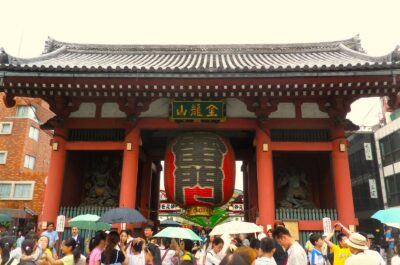
Tokyo, Japan
Tokyo is the best overall city in the world for retirees, followed by Wellington and Singapore. Dubai is the best city in the world for financial security and legacy management, followed by Singapore and Wellington. The city where retirees feel safest is Zurich, followed by Munich and Abu Dhabi.
LONDON – Veolar.eu, a global leader in antioxidant production and distribution, has released a study in partnership with Magmatic Research that reveals the best destinations in the world for retirees to relocate and travel to. As a company whose mission is to help people live healthier for longer, they wanted to better understand where people can enjoy the best quality of life in their golden years. They therefore carried out a study to identify the best cities in the world for retirement by analysing data on different relevant themes from sources such as the World Health Organization, World Bank and the OECD among many others.
How the study was conducted: In light of the impact of inflation on the global economy, the study began by establishing the principal factors that contribute towards a high quality lifestyle for retirees and both physical and financial security.
With war in mainland Europe and global security being threatened more than it has been for decades, the researchers set out to analyse each city’s liveability for local and visiting retirees by considering physical safety and wellbeing as well as social factors. This was achieved by:
- Assessing the number and quality of cultural venues, museums, public parks and spaces, restaurants, senior-focused events and tourism infrastructure in each city.
- Establishing the overall safety of retirees in each location as well as proximity to conflict or local political unrest.
- Reviewing each city’s air quality and considering the life expectancy of the local population.
The next category that was considered was the infrastructure of each city. This was achieved by:
- Assessing the quality of healthcare services available, seeing as retirees depend upon high quality healthcare services more than the working-aged population.
- Establishing how easy it is for a retiree to live in each location by assessing the mobility options within the city parameters and the quality and availability of housing.
- Considering the financial security and availability of legacy management options available to people in each city, in recognition of the fact that retirees often depend upon finite funds that are impacted by the wider economy as well as their own actions.
Then the researchers evaluated the accessibility of each location. This was achieved by:
- Assessing how widely accessible high quality healthcare is, the rates of universal healthcare coverage and how much retirees spend on healthcare in each location. This was of particular relevance following the impact that the coronavirus had on older age groups.
- Establishing the quality of the public transport in each location, appreciating that not all retirees have access to cars.
- Determining how well-connected each city is to others, in recognition of the fact that retirees may wish to travel on vacations and to see family and friends around the world.
The results compare and reveal the best cities in the world for retirees to relocate and travel to.
The table below reveals the 10 best boomer destinations in the world. This is a score that ranks the best cities in the world for baby-boomers to visit on holiday. All scores are out of 100, with 100 being the highest possible score.

The table below reveals the 10 best cities in the world for retirement. All scores are out of 100, with 100 being the highest possible score.

The table below reveals the 10 best cities in the world for cultural offerings. All scores are out of 100, with 100 being the highest possible score.

The table below reveals the 10 cities in the world where retirees feel safest. All scores are out of 100, with 100 being the highest possible score.

Vicky is the co-founder of TravelDailyNews Media Network where she is the Editor-in Chief. She is also responsible for the daily operation and the financial policy. She holds a Bachelor's degree in Tourism Business Administration from the Technical University of Athens and a Master in Business Administration (MBA) from the University of Wales.
She has many years of both academic and industrial experience within the travel industry. She has written/edited numerous articles in various tourism magazines.














































































































































































































